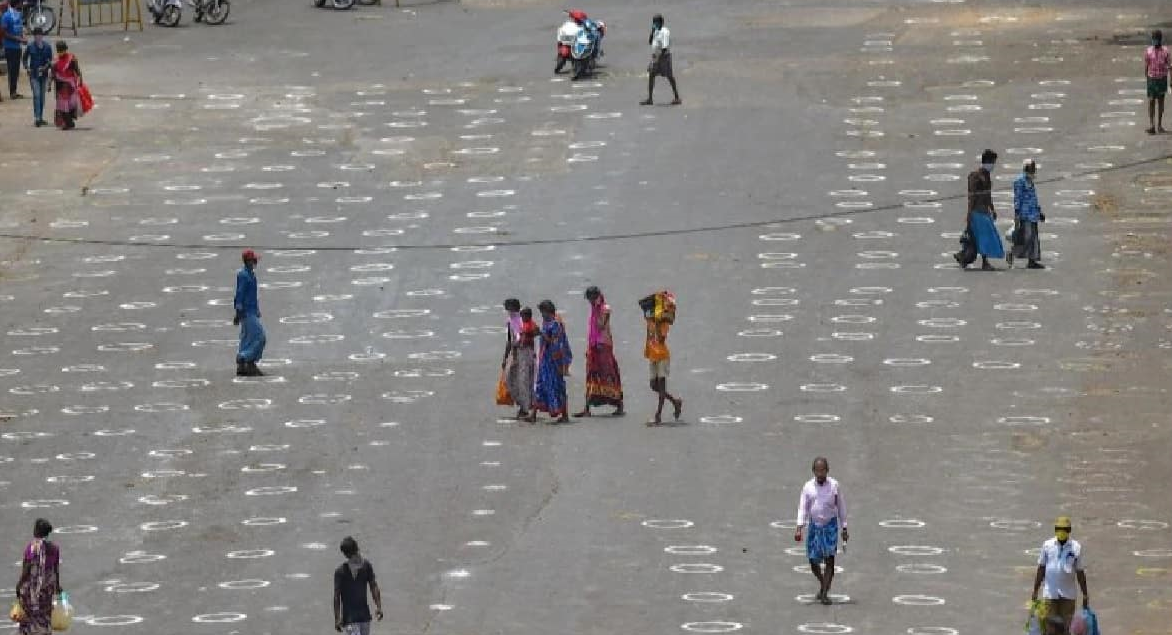Amidst lockdown and the increasing cases of COVID-19 in India, people feel that normalcy would be restored only by 2021. This has come out in a multi-city ‘Perception Study on COVID – 19 Lockdown’ conducted by CMSR Consultants, a leading research organization in the country, to understand and capture public opinion about the nation-wide lockdown. The study also tried to understand the impact of the lockdown on people’s lives. In the sample, more than one fourth of the respondents felt they have to live with the virus for more than a year, while 28% respondents felt that people will have to survive with the virus at-least for a year.
The study sought the opinion of 1000 people spread over cities/states including Delhi/NCR, Bangalore, Pune, Mumbai, Thane, Indore, Bhopal, Raipur, Patna, Muzaffarpur, Chennai, Bhubaneshwar, Jaipur, Jodhpur, Alappuzha, Calicut, Palakkad, Ranchi, Lucknow, Hyderabad and Vijayawada.The sample survey ensured the participation of both, male (60%) and female (40%) respondents. Maximum respondents were from 18-45 years of age group (69%). In terms of educational background, most of the respondents seemed to be well qualified as more than 90 percent of them were either graduates or above.
Key Highlights:
- In the study, nearly 72% respondents perceived lockdown as a very effective measure to combat the virus,while one fourth of the population viewed lockdown as an effective tool but only to some extent. Close to 66% respondents had strongly agreed with the fact that lockdown in India was announced on time, while another 20% somewhat agreed to it.
- 97% respondents stated their support for the government if the lockdown extends further. Of those who echoed in support of the lockdown, 39% of them would like to see some relaxations with the lockdown restrictions. Nearly 3 percent respondents did not want the lockdown to be extended anymore.
- Around 95% respondents were seemed to be satisfied (fully satisfied-50%, somewhat satisfied-45%) with the enforcement measures taken by their respective states to implement the lockdown. Only one third of the sample population had experienced some problems in getting the delivery of essential goods.
- Most of the respondents (61%) believed that, even after the lockdown, a sense of fear will prevail among people while meeting the others. About 60% respondents felt that people will try and avoid the public transport as much as possible for commuting.
- Most of the sample population was not in favour of lifting the ban from rail and flight travels. If at all government decides to lift the ban, it should be done cautiously. 58% respondents stated that ban on domestic flights should continue for more some more period.
Economic challenges ahead
65% respondents opined that lockdown will affect the job market badly, while 33% felt that job market will be affected but only to some extent. Of those who stated the effects of lockdown on job markets, a little over half of the sample respondents felt that manufacturing/production will bear the maximum hit, followed by the service sectors (25%). Nearly 9% respondents believed that construction field will also be affected by the lockdown. Only 6% respondents opined that lockdown will negatively impact the agriculture sector. 35% respondents shared about already feeling the financial crunch.
When asked about the adequacy of the social relief package offered by the government, 46% respondents felt it was inadequate considering the needs of the people. According to 28% respondents, the relief offered by the government was sufficient to meet the needs of the deserving people. Around 26% respondents had no clue about this package and they did not know about this.
Work from home and changing work culture
Respondents felt that one positive outcome of the lockdown has been that, both employers and employees have realized that ‘work from home’ is also a viable option and this could be encouraged to avoid the rush on roads. Another important takeaway is the increased awareness among people about social distancing and usefulness of wearing mask.

